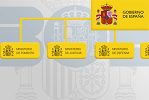Taxation of Parent companies and their subsidiaries
Content
Introduction
Council Directive 2011/96/EU of 30 June 2011 on the regime applicable to parent companies and subsidiaries of different Member States![]() , hereinafter the Parent-Subsidiary Directive, highlights the importance of groups of companies from different Member States in creating conditions analogous to those of an internal market in the Union, and thus ensuring the proper functioning of that internal market. This justifies taking the necessary measures so as not to hamper operations which are subject to particular restrictions, disadvantages or distortions arising from the tax provisions of the Member States.
, hereinafter the Parent-Subsidiary Directive, highlights the importance of groups of companies from different Member States in creating conditions analogous to those of an internal market in the Union, and thus ensuring the proper functioning of that internal market. This justifies taking the necessary measures so as not to hamper operations which are subject to particular restrictions, disadvantages or distortions arising from the tax provisions of the Member States.
In this scenario, the main objective of the Parent-Subsidiary Directive is to exempt dividends and other profits distributed by subsidiaries to their parent companies from withholding tax and to eliminate double taxation of such income in the parent company.
The current internal regulations listed below comply with the provisions of the Parent-Subsidiary Directive.
Exemption on profits of subsidiaries resident in Spain
Profits distributed by subsidiary companies resident in Spanish territory to their parent companies resident in other EU Member States or to the latter’s Permanent Establishments located in other Member States are exempt provided that a number of requirements are met:
- That both companies are subject to and not exempt from any of the taxes on the profits of legal entities in the Member States of the European Union, and permanent establishments are subject to and not exempt from taxation in the State in which they are located.
- That the distribution of profits is not a consequence of the liquidation of the subsidiary.
- That both companies take one of the forms provided for in the Annex to the Parent-Subsidiary Directive.
It will be considered a parent company if it owns a direct or indirect holding in another company of at least 5 %. The latter will be considered a subsidiary company. Such a holding must have been maintained without interruption during the year prior to the day on which the profit to be distributed is due or, failing that, must have been maintained for the time necessary to complete one year.
This exemption shall not apply when the majority of the voting rights of the parent company are held, directly or indirectly, by individuals or legal entities that do not reside in Member States of the European Union or in States that are members of the European Economic Area with which there is an effective exchange of information on tax matters, except when the incorporation and operation of the company is for valid economic reasons and substantive business reasons.
This specific anti-abuse clause is without prejudice to the application of the general anti-abuse clause and to the application of the principles derived from the judgment of the Court of Justice of the European Union (Grand Chamber) of 26 February 2019 in Joined Cases C-116/16 and C-117/16.![]()
Exemption on dividends from companies resident in Spain
The provisions of the previous point are completed by the information below. In general, dividends or shares in the profits of its subsidiaries must be included in the taxable amount of the Spanish parent company for corporate income tax purposes. However, the 95 % exemption on the amount of dividends will apply when the following requirements are met:
- There is a direct or indirect holding in the subsidiary of at least 5 percent. The participation must be held from at least the year before the dividend becomes due or, if this is not the case, the participation must be maintained until the end of that year.
- The subsidiary company must be liable to pay, and not exempt from, a tax similar to Spanish corporation tax, at a nominal tax rate equal to or higher than 10 % in the year in which the distributed profits were generated.










